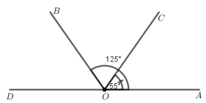Read the following passage and mark the letter A, B, C, or D on your answer sheet to indicate the correct answer to each of the questions from 35 to 42.
Biological diversity has become widely recognized as a critical conservation issue only in the past two decades. The rapid destruction of the tropical rain forests, which are the ecosystems with the highest known species diversity on Earth, has awakened people to the importance and fragility of biological diversity. The high rate of species extinctions in these environments is jolting, but it is important to recognize the significance of biological diversity in all ecosystems. As the human population continues to expand, it will negatively affect one after another of Earth’s ecosystems. In terrestrial ecosystems and in fringe marine ecosystems (such as wetlands), the most common problem is habitat destruction. In most situations, the result is irreversible. Now humans are beginning to destroy marine ecosystems through other types of activities, such as disposal and runoff of poisonous waste; in less than two centuries, by significantly reducing the variety of species on Earth, they have irrevocably redirected the course of evolution.
Certainly, there have been periods in Earth’s history when mass extinctions have occurred. The extinction of the dinosaurs was caused by some physical event, either climatic or cosmic. There have also been less dramatic extinctions, as when natural competition between species reached an extreme conclusion. Only 0.01 percent of the species that have lived on Earth have survived to the present, and it was largely chance that determined which species survived and which died out.
However, nothing has ever equaled the magnitude and speed with which the human species is altering the physical and chemical world and demolishing the environment. In fact, there is wide agreement that it is the rate of change humans are inflicting, even more than the changes themselves, that will lead to biological devastation. Life on Earth has continually been in flux as slow physical and chemical changes have occurred on Earth, but life needs time to adapt-time for migration and genetic adaptation within existing species and time for the proliferation of new genetic material and new species that may be able to survive in new environments.
What does the passage mainly discuss?
A. The variety of species found in tropical rain forests
B. The cause of the extinction of the dinosaurs
C. The time required for species to adapt to new environments
D. The impact of human activities on Earth’s ecosystems













